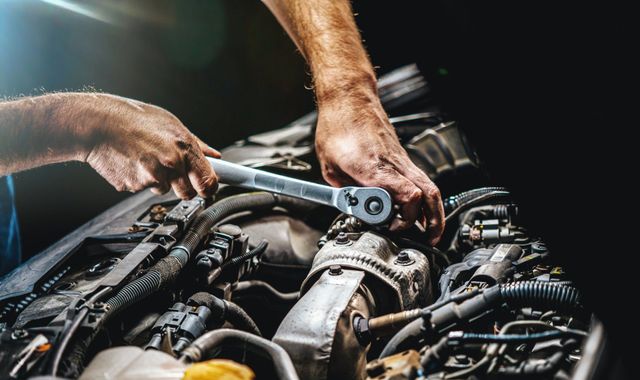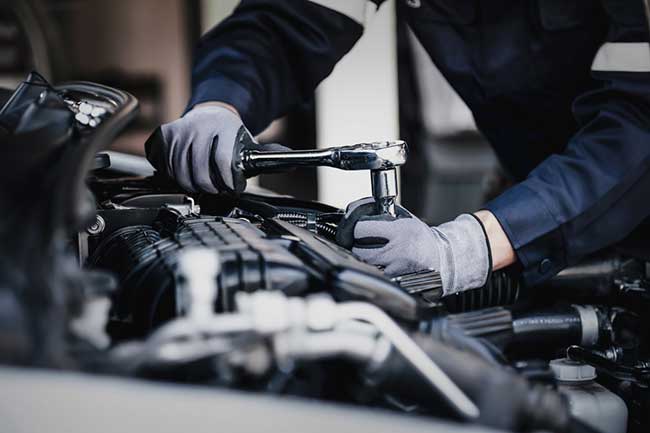All Categories
Featured
When your car overheats, it can seem like a major emergency situation, yet staying calm and adhering to the appropriate actions can stop major engine damages and aid obtain you back on the roadway safely. In this blog post, we'll explore what to do if your car overheats and use preventative tips to reduce the threat of overheating in the future.
What to Do If Your Vehicle Gets too hot. Pull Over to a Safe Place The first and most crucial step if your car starts to overheat is to draw over to a safe spot asap. Turn on your danger lights and assist your automobile to the shoulder or into a parking area. Keeping your car running while it's overheated can trigger severe damage to the engine, so it's critical to shut the engine off immediately.
Let the Engine Cool Off Once you've safely stopped, enable the engine to cool off. You ought to never try to open the radiator cap while the engine is still hot, as the launch of vapor or warm coolant can create burns. Wait at the very least 15-20 minutes to enable the engine temperature to drop to a safer degree prior to continuing.
![]()
Check the Coolant Degree After the engine has actually cooled down, examine the coolant levels by checking the storage tank or radiator. Top it off with a combination of coolant and water (as defined by your vehicle's supplier) if it's reduced. Always utilize caution when opening the coolant reservoir, as pressure may have accumulated.
Search For Visible Leaks While you wait on the engine to cool, aesthetically check the radiator, hoses, and coolant reservoir for any kind of visible leakages or splits. A dripping radiator or pipe is a common cause of overheating. If you locate a significant leak, it's better to call a tow service than threat driving better and triggering additional damages.
Reboot the Engine After allowing the engine to cool down and making certain the coolant is rounded off, start the engine and keep track of the temperature scale. If the temperature remains to rise quickly, it's ideal to close the engine off and require roadside help or a tow to the nearest auto mechanic.
![]()
Just How to avoid Overheating in the Future. Frequently Check Coolant Degrees Among the most convenient ways to prevent getting too hot is by preserving the right level of coolant. In time, coolant can evaporate, so consistently inspect the coolant degrees in the reservoir. Reduced coolant levels can trigger the engine to get too hot rapidly, so leading it off as required.
Evaluate the Radiator The radiator plays an essential function in keeping the engine cool. Occasionally check the radiator for any obstructions, dirt, or particles that could block air flow. If you discover any indicators of damages, such as rust or leakages, have it fixed or replaced asap.
The thermostat regulates the circulation of coolant, while the water pump flows it with the engine. If either part is defective, it can stop proper cooling.
Flush the Cooling System In time, coolant can break down and end up being inadequate, causing a buildup of debris in the system. Purging the air conditioning system every 30,000 miles, or as recommended in your car's manual, helps to eliminate any type of sludge or accumulation and guarantees the cooling system is functioning correctly.
Display the Problem of the Hoses The tubes in your vehicle's air conditioning system can wear or crack with time. Evaluate the tubes for any signs of wear, such as bulging, fractures, or leakages, and change them if needed. Avoiding coolant leaks can go a long means in avoiding overheating.
![]()
Drive Responsibly Aggressive driving, such as increasing promptly or driving at broadband, places extra strain on your engine and its cooling system. Try to drive at moderate rates, specifically on warm days or when driving on high inclines, to lower the possibilities of getting too hot.
Prevent Overwhelming Your Vehicle Carrying too much weight in your lorry places anxiety on the engine and cooling system. Always bear in mind your vehicle's weight limitation, specifically if you're hauling heavy loads, lugging a trailer, or driving lengthy distances in warm weather.
Final thought. An overheating car can be a frightening experience, however knowing how to react and stop it can save you time, money, and possible engine damages. Constantly examine your coolant degrees, check vital elements like the radiator, thermostat, and hose pipes, and adhere to a routine maintenance timetable. By remaining on top of your automobile's air conditioning system, you can reduce the risk of overheating and appreciate a smoother, more secure driving experience.
What to Do If Your Vehicle Gets too hot. Pull Over to a Safe Place The first and most crucial step if your car starts to overheat is to draw over to a safe spot asap. Turn on your danger lights and assist your automobile to the shoulder or into a parking area. Keeping your car running while it's overheated can trigger severe damage to the engine, so it's critical to shut the engine off immediately.
Let the Engine Cool Off Once you've safely stopped, enable the engine to cool off. You ought to never try to open the radiator cap while the engine is still hot, as the launch of vapor or warm coolant can create burns. Wait at the very least 15-20 minutes to enable the engine temperature to drop to a safer degree prior to continuing.

Check the Coolant Degree After the engine has actually cooled down, examine the coolant levels by checking the storage tank or radiator. Top it off with a combination of coolant and water (as defined by your vehicle's supplier) if it's reduced. Always utilize caution when opening the coolant reservoir, as pressure may have accumulated.
Search For Visible Leaks While you wait on the engine to cool, aesthetically check the radiator, hoses, and coolant reservoir for any kind of visible leakages or splits. A dripping radiator or pipe is a common cause of overheating. If you locate a significant leak, it's better to call a tow service than threat driving better and triggering additional damages.
Reboot the Engine After allowing the engine to cool down and making certain the coolant is rounded off, start the engine and keep track of the temperature scale. If the temperature remains to rise quickly, it's ideal to close the engine off and require roadside help or a tow to the nearest auto mechanic.

Just How to avoid Overheating in the Future. Frequently Check Coolant Degrees Among the most convenient ways to prevent getting too hot is by preserving the right level of coolant. In time, coolant can evaporate, so consistently inspect the coolant degrees in the reservoir. Reduced coolant levels can trigger the engine to get too hot rapidly, so leading it off as required.
Evaluate the Radiator The radiator plays an essential function in keeping the engine cool. Occasionally check the radiator for any obstructions, dirt, or particles that could block air flow. If you discover any indicators of damages, such as rust or leakages, have it fixed or replaced asap.
The thermostat regulates the circulation of coolant, while the water pump flows it with the engine. If either part is defective, it can stop proper cooling.
Flush the Cooling System In time, coolant can break down and end up being inadequate, causing a buildup of debris in the system. Purging the air conditioning system every 30,000 miles, or as recommended in your car's manual, helps to eliminate any type of sludge or accumulation and guarantees the cooling system is functioning correctly.
Display the Problem of the Hoses The tubes in your vehicle's air conditioning system can wear or crack with time. Evaluate the tubes for any signs of wear, such as bulging, fractures, or leakages, and change them if needed. Avoiding coolant leaks can go a long means in avoiding overheating.

Drive Responsibly Aggressive driving, such as increasing promptly or driving at broadband, places extra strain on your engine and its cooling system. Try to drive at moderate rates, specifically on warm days or when driving on high inclines, to lower the possibilities of getting too hot.
Prevent Overwhelming Your Vehicle Carrying too much weight in your lorry places anxiety on the engine and cooling system. Always bear in mind your vehicle's weight limitation, specifically if you're hauling heavy loads, lugging a trailer, or driving lengthy distances in warm weather.
Final thought. An overheating car can be a frightening experience, however knowing how to react and stop it can save you time, money, and possible engine damages. Constantly examine your coolant degrees, check vital elements like the radiator, thermostat, and hose pipes, and adhere to a routine maintenance timetable. By remaining on top of your automobile's air conditioning system, you can reduce the risk of overheating and appreciate a smoother, more secure driving experience.
Latest Posts
Discover Exclusive Auto Repair Specials in Chicago at Montclare Auto Repair
Published May 27, 25
1 min read
Uncover Reduce Expenses on Car Maintenance with Montclare Auto Repair’s Limited-Time Deals
Published May 27, 25
1 min read
How Regular Vehicle Maintenance at Montclare Auto Repair Saves You Money
Published May 26, 25
1 min read
More
Latest Posts
Discover Exclusive Auto Repair Specials in Chicago at Montclare Auto Repair
Published May 27, 25
1 min read
Uncover Reduce Expenses on Car Maintenance with Montclare Auto Repair’s Limited-Time Deals
Published May 27, 25
1 min read
How Regular Vehicle Maintenance at Montclare Auto Repair Saves You Money
Published May 26, 25
1 min read